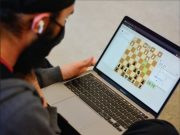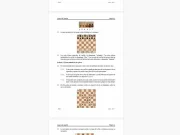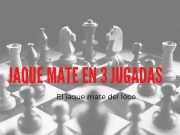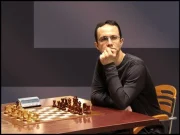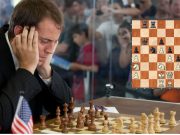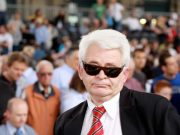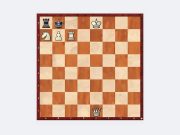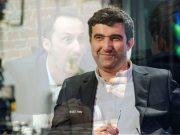Cuando Jonathan Rowson publicó su libro: “Los siete pecados capitales del ajedrez” no tardé en comprarlo. Rowson es un afamado jugador escocés, que se ha abierto un espacio reconocido dentro de la pedagogía ajedrecística. Es un ejemplo claro en el que el profesor transciende al jugador.
Él llama pecado en ajedrez a una mala interpretación de la realidad y nos sugiere, de manera resumida, que vigilemos nuestros pensamientos y nuestras emociones. La pregunta es: ¿existe la posibilidad de utilizar los conocimientos que Rowson expone y otros conocimientos estratégicos o tácticos ajedrecísticos para mejorar nuestra experiencia como candidatos?
La respuesta es sí.
- Pensamiento. Pensar significa muchas cosas distintas, podemos hacerlo de manera evaluativa o de manera intuitiva. Pero lo importante es tener en cuenta si antes de concentrarnos en desenmarañar una línea de pensamiento (lo que sería el equivalente a una variante en ajedrez) hay otros factores a considerar. Muchos candidatos acuden a las entrevistas centrándose en lo “tienen que decir” no en lo que “tienen que pensar”. El remedio: pi-en-sa.
- Relajación. Omisión de los momentos claves. Falta de sensibilidad a la tendencia. Toda entrevista suele llevar una tendencia, es como si hubiera varias entrevistas dentro de una misma entrevista. Las cosas no suelen acabar bien si no llevamos al entrevistador a un estado emocional positivo. Pero no caigas en el error de tratar de enderezar toda una entrevista de tendencia descendente con un comentario ingenioso antes de salir por la puerta. El remedio: sensibilidad.
- Avidez. Decía Deng Ming Dao: “El mejor luchador no es feroz”. La partida de ajedrez contiene un reto importante: al contrario de lo que sucede en otros deportes como, por ejemplo, el tenis. Cuando uno falla, tan sólo ve perjudicada relativamente su situación (posición) dentro del partido (partida). Quedan minutos por delante y es posible remontar, sacar el coraje o dejarse llevar en volandas por el público hasta la meta. Los jugadores de ajedrez sabemos que esto no sucede en nuestras partidas, en primer lugar, porque estamos solos “ante el peligro”, la responsabilidad no se comparte con un mal portero o con un árbitro casero. En segundo lugar, porque los errores en ajedrez casi siempre significan la derrota. No cometas errores irreparables por pequeños descuidos. Mucho más importante que regalar una pose estudiada o tratar de ganar puntos con lecciones inteligentes, es no dañar la propia imagen y mantener la entrevista en una sana tendencia creciente o, como mínimo, neutra. El remedio: sentido común.
- Materialismo. Está claro que el salario es importante, pero lo es más cuando tienes que hablar de ello. La partida de ajedrez no sólo se gana consiguiendo más material que el rival, existen muchas otras estrategias para catapultar nuestro juego. No es elegante preguntar por el salario nada más sentarse en la silla, y la mayoría de las veces se convierte en un error irreparable de los que hablábamos en el punto 3. He visto en numerosas ocasiones, cómo puestos de una considerable proyección no eran cubiertos por buenos candidatos sólo porque querían cobrar muy poco más a lo ofrecido. En muchos de estos casos el precio de su CV se hubiera incrementado exponencialmente en un año.
- Egoísmo. En una de las muchas entrevistas que he llevado a cabo, escuché a un candidato, tras interrumpir mi presentación de la compañía para la que se supone que quería trabajar: “A mí todo eso me da igual, yo lo que quiero saber es lo que me ofrecéis de contrato, salario etc…” Pensar en uno mismo es legítimo, y todos tenemos un ego. Pero el egoísmo siempre rodea todos los errores basados en la falta de objetividad. En una partida de ajedrez: no pensar en las ideas del oponente con el mismo detenimiento que en las propias, pensar en lo magnífico que es su juego durante la partida. Llevar esta analogía al escenario de una entrevista de trabajo nos ayuda a comprender fácilmente qué conductas deben evitarse. ¿La solución?: la profilaxis.
- Perfeccionismo. El perfeccionismo se manifiesta en un deseo de encontrar la mejor jugada en todas y cada una de las ocasiones. El perfeccionista es un imitador de un ideal de perfección, y no juega como quien es sino como quien cree que debería ser. En una entrevista de trabajo podemos vernos abocados a una falta de naturalidad que convierta nuestra persona en un personaje. ¿La solución?: la confianza.
- Dispersión. Una entrevista de trabajo no dura tanto como una partida de ajedrez. Recordemos que en el ritmo de juego internacional es fácil que las partidas superen las 5 horas. Céntrate durante el tiempo que dure la entrevista. La dispersión es la sensación de que no controlas la entrevista, divagas, pierdes el hilo… Estudios científicos sugieren que podemos perder literalmente nuestras facetas racionales cuando son reemplazadas por las emociones. ¿La solución?: concentración.
– See more at: http://www.universitariocontrabajo.com/los-siete-pecados-capitales-de-la-entrevista-de-trabajo/#sthash.17wWABWd.sGgbeWiF.dpuf
ENGLISH VERSION
When Jonathan Rowson published his book, “The Seven Deadly Chess Sins” I soon buy it. Rowson is a famous Scottish player, which has a recognized open space in chess education. It is a clear example where the teacher goes beyond the player.
He calls sin in chess to a misinterpretation of reality and suggests, in summary, that we watch our thoughts and emotions. The question is: is it possible to use the knowledge that exposes Rowson and other strategic or tactical chess knowledge to enhance our experience as candidates?
The answer is yes.
Thought. Thinking means many different things we can do or evaluative way intuitively. But the important thing is to consider whether to focus on unraveling before a line of thought (which would be the equivalent of a chess variant) are other factors to consider. Many candidates come to interviews focusing on what “have to say” not what they “have to think.” The remedy: think
Relaxation. Omission of the key moments. Insensitivity to the trend. All interviews often wear a trend, it’s as if several interviews within a single interview. Things do not usually end well if the interviewer does not carry a positive emotional state. But do not make the mistake of trying to straighten a downward trend all interview with a witty remark before heading out the door. The remedy: sensitivity.
Avidity. Deng Ming Dao said: “The best fighter is not ferocious.” The game of chess has a major challenge: contrary to what happens in other sports, eg, tennis. When one fails, as only relatively impaired its location (position) within the match (game). Get minutes ahead and it is possible to trace, or get the courage to get carried away in a twinkling by the public to the finish. Chess players know that this does not happen in our games, firstly because we are alone “High Noon”, the responsibility is not shared with a bad goal keeper or a bad referee. Second, because mistakes in chess almost always mean defeat. Do not make irreparable mistakes small oversights. Much more important than giving a studied pose or trying to win points with smart lessons, not to damage the image itself and keep the interview in a healthy growing or at least neutral trend. The remedy: common sense.
Materialism. It is clear that the salary is important, but more so when you have to talk about it. The chess game is won not only getting more material than the opponent, there are many other strategies to catapult our game. Not smart to ask for wages only sit in the chair, and most of the time it becomes irreparable of those who spoke in point 3 mistake.Ive seen on numerous occasions how jobs considerable projection were not covered for good candidates just because they wanted to charge a little more featured. In many cases the price of the CV would have increased exponentially in one year.
Selfishness. In one of many interviews I have conducted, I heard a candidate, after interrupting my presentation of the company they are supposed to want to work: “To me all that I do not care, what I want to know is what will you offer to me, contract, salary etc … ” To think oneself is legitimate, and we all have an ego. But selfishness always surrounds all errors based on lack of objectivity. In a chess game: think of the ideas of the opponent with the same detail as in their own, think of how great your game is in the game. Carrying this analogy to the stage of a job interview helps us to understand which behaviors should be avoided easily. The solution: prophylaxis.
Perfectionism. Perfectionism manifests itself in a desire to find the best move in each and every one of the occasions. The perfectionist is a copycat of an ideal of perfection, and does not play like someone who believes it is but as it should be. In a job interview we may be doomed to a lack of naturalness that person becomes our character. The solution: trust.
Scattering. A job interview does not last as long as a game of chess. Recall that in the rate of the international game is easier than games exceed 5 hours. Focus for the duration of the interview. Dispersion is the feeling that you do not control the interview, ramble, you lose the thread … Scientific studies suggest that you can literally lose our rational facets when they are replaced by emotions. The solution: concentration.








